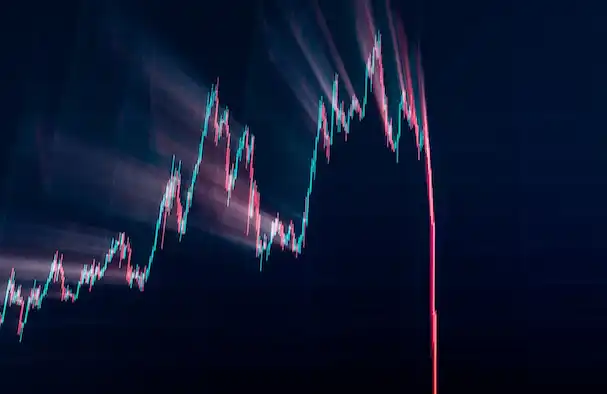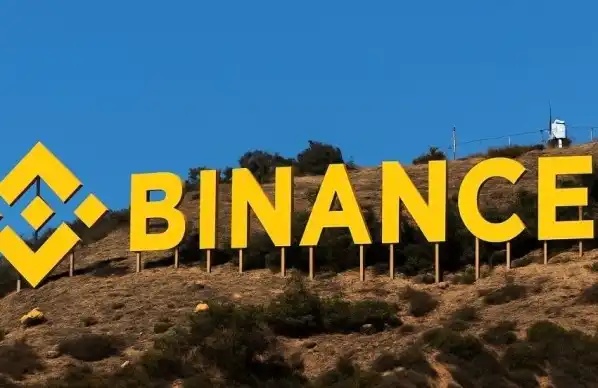The "Invisible Whale" Theory of Bitcoin: How Tether Manipulates BTC Prices with Stablecoins?
Original Title: "Caught in the Invisible BTC Puppet Master's Conspiracy? Unveiling Tether's Bitcoin Strategy in Full View"
Author: Nancy, PANews
At the center stage of the 2025 Bitcoin Conference, Tether's CEO Paolo Ardoino stood in front of an image of Goku and remarked, "Bitcoin is my Goku, it’s our friend."

This seemingly emotional statement is, in fact, a reflection of Tether's core strategy. As the issuer of USDT, the world’s largest stablecoin, Tether is positioning itself as a builder entrenched in various layers of the Bitcoin ecosystem. From reserve asset allocation to mining ventures, from ecosystem investments to infrastructure development, Tether is embedding itself into the nerve center of the emerging global financial order.
However, Tether's deep penetration into the Bitcoin system has also sparked numerous conspiracy theories, generating considerable debate overseas. Critics have questioned whether Tether artificially inflates Bitcoin prices by incessantly issuing USDT, creating a "closed-loop bubble" supported by Bitcoin reserves, gold backing, and USDT issuance.
Forging a Bitcoin Reserve Strategy, Accused as the Sole Major Buyer
In May 2023, Tether announced plans to allocate up to 15% of its realized net operating profits regularly for purchasing Bitcoin. The company stated that its current and projected Bitcoin holdings would not exceed shareholder capital buffers and aimed to bolster and diversify its reserves further. By Q1 2025, Tether held Bitcoin worth approximately $7.66 billion, marking significant growth compared to the previous quarter.
The "Gold + Bitcoin" dual reserve mechanism is Tether's hedging strategy against sovereign fiat currency risks while delivering substantial financial returns. Paolo Ardoino recently disclosed that Tether currently holds over 100,000 Bitcoin and more than 50 tons of gold. In 2024 alone, Tether’s net profit reached $13.7 billion, with Bitcoin and gold investments contributing around $5 billion of profits. Ardoino emphasized, "We don’t hold gold to compete with Bitcoin but to challenge centralized fiat monetary systems."
However, WhaleWire founder Jacob King argues, "Relying on perpetual money printing and market support, Tether is the only major buyer in the Bitcoin market. By issuing new USDT to pump Bitcoin’s price, they then sell off the excess, purchasing dollars and gold as reserves to validate their legitimacy." King labeled this model as the "ultimate house of cards," warning that if stablecoins face regulatory scrutiny or Bitcoin demand wanes, the entire system could collapse.
Tether's ambitions for Bitcoin go far beyond simply hodling. In April of this year, Tether, in partnership with SoftBank and Cantor, launched the crypto investment joint venture "Twenty One Capital," aiming to build a global platform for the acquisition and management of Bitcoin assets with a total funding target of $3 billion. This platform is widely seen within the industry as Tether’s strategic play akin to MicroStrategy’s structural approach. In this joint venture, Tether holds a 42.8% equity stake and 51.7% of the voting rights, effectively giving it controlling power. Meanwhile, Cantor owns 5% of Tether’s shares, and its CEO, Brandon Lutnick, is the son of U.S. Commerce Secretary Howard Lutnick.
“Jack Mallers (CEO of Twenty One Capital) is deeply connected to the Tether and Bitfinex ecosystem. His other company, Strike, has long had close ties with Tether. They claim there is hefty market demand, but much of their Bitcoin reserves are sourced directly from Tether. This is part of a larger shell game in the broader liquidity manipulation play,” Jacob King openly stated on social media. He also pointed out that if stablecoin regulations tighten in the U.S., Tether could struggle to continue injecting liquidity. Furthermore, the recent massive capital outflows from Bitcoin spot ETFs indicate that institutions are retreating at a rapid pace.

On-chain data reveals that Twenty One Capital's Bitcoin reserves originate directly from Tether, with the latter recently transferring over 37,000 BTC in five transactions, valued at approximately $4 billion. Additionally, Tether invested over $770 million in the video platform Rumble, which has also established its own Bitcoin treasury, citing Bitcoin’s potential as an inflation-hedging instrument.
Diversifying with Self-Mining Operations and Strategic Investments to Become One of the World's Largest Miners
Tether’s ambitions extend far beyond asset reserves. As early as 2023, Tether initiated a renewable energy-powered Bitcoin mining project in Uruguay, leveraging the country’s abundant clean energy resources like hydropower and wind energy to create a highly efficient and sustainable mining operation. Shortly thereafter, Tether participated in El Salvador’s Volcano Energy initiative, becoming a major capital driver behind one of the largest geothermal Bitcoin mining centers globally. Continuing its expansion in the Latin American energy sector, Tether has invested a total of $500 million in Uruguay, Paraguay, and El Salvador, building vertically integrated mining facilities.

"El Salvador's so-called Bitcoin investment is actually a carefully crafted illusion. The Bitcoin in its treasury was directly transferred from Bitfinex and Tether. Tether even personally drafted all of El Salvador’s Bitcoin legislation. However, what many have overlooked is that El Salvador has quietly abandoned the implementation of Bitcoin as legal tender. The Tether ecosystem and its internal network cannot sustain all of this, as there is fundamentally no real market demand." While some of Jacob King's assertions lack concrete evidence, it is true that in February this year, El Salvador formally amended its Bitcoin legislation, removing Bitcoin's status as legal tender. Businesses and institutions are no longer required to accept Bitcoin, nor can it be used for tax payments. Polls show that the vast majority of citizens have not benefited, with no visible improvement in their economic situation.
In addition to building its own mining farms, Tether has aggressively expanded its global mining footprint through investments and acquisitions. So far, it has secured stakes in companies such as Bitdeer, Northern Data Group, Blockstream, and Swan Mining, covering areas like chip procurement, server manufacturing, data center construction, and enterprise-grade hashrate hosting. These efforts position Tether as a key player in supporting its Bitcoin mining strategy.
This year, Tether took another step forward by announcing the deployment of its hashrate to the OCEAN mining pool, advancing decentralized Bitcoin mining infrastructure. Tether also announced plans to open-source its Bitcoin mining software, which will enable new miners to enter the market without relying on costly third-party providers.
According to disclosures by Ardoino at the Bitcoin 2025 conference, Tether has invested over $2 billion in energy and infrastructure, with actual investments in Bitcoin mining being even higher. By the end of this year, Tether is projected to become the largest Bitcoin miner globally—a forecast that includes all publicly listed companies.
A Full-Stack Layout from Bitcoin-Based Issuance to Cultural Integration
Tether is advancing its full-stack strategic layout, continuously expanding the boundaries and influence of the Bitcoin ecosystem. For instance, on the technical front, beyond blockchains like Ethereum and TRON, Tether has issued USDT via Bitcoin-related protocols such as Omni, Liquid, Lightning, RGB, and popular Bitcoin sidechain networks like Plasma, with potential for native USDT support. In the realm of wallet tools, Tether AI has launched the self-custodial wallet WDK, which natively supports Bitcoin and USDT, enabling integration for enterprises, applications, websites, and even AI Agents, further lowering the barriers to building Bitcoin financial infrastructure. In the payments ecosystem, Tether has donated to the open-source project BTC Pay Server, supporting continued development and optimization of its open-source crypto payment processor.
On the cultural and educational front, Tether has co-hosted the Plan B Forum with the city of Lugano, Switzerland, and sponsored the local football club to bring Bitcoin's branding into the European football culture. Simultaneously, through the Tether Education initiative, the company has partnered with several global universities to promote Bitcoin knowledge and cultivate the next generation of crypto natives. Twenty One Capital plans to focus on popularizing Bitcoin-related knowledge in the future by creating educational content, video media, and developing a range of Bitcoin-related financial and consulting services.
"For me, the most important thing is to contribute to building a more accessible, resilient, and useful Bitcoin ecosystem. If I can make an impact in areas like infrastructure, technology, and education, that’s enough. The story of Bitcoin has never been about a single person; it’s about a global community’s commitment to an idea—persisting through lows and despite misunderstanding, to steadfastly build the future. If I can play a role in helping more people join the ecosystem and equipping them with tools for sovereignty and security, that would be a mission worth remembering," Ardoino recently remarked in an interview with Bitcoin News.
Welcome to join the official BlockBeats community:
Telegram Subscription Group: https://t.me/theblockbeats
Telegram Discussion Group: https://t.me/BlockBeats_App
Official Twitter Account: https://twitter.com/BlockBeatsAsia
 Forum
Forum OPRR
OPRR Finance
Finance
 Specials
Specials
 On-chain Eco
On-chain Eco
 Entry
Entry
 Podcasts
Podcasts
 Activities
Activities









